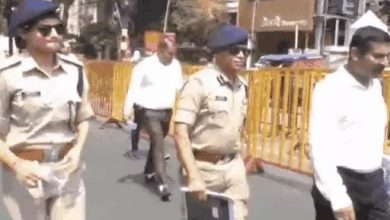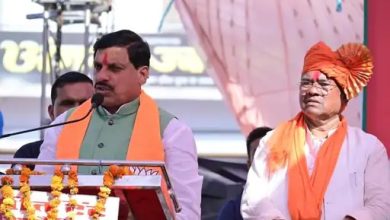Bill passed for confiscation of illegal properties of government employees
BHOPAL: Now government has power to confiscate properties of its employees if they are found to be indulging in any property corruption case. The Madhya Pradesh assembly on Thursday passed a bill giving the government wide-ranging powers to confiscate properties of its employees who amass wealth through corrupt means.
Against government officers, the Special Courts Bill 2011 will ensure prompt disposal of corruption cases— from the village patwari to the chief secretary in specially empowered courts.
Madhya Pradesh has witnessed massive bureaucratic corruption in recent months with the most infamous case being of the IAS couple, Arvind and Tinu Joshi, who built an empire worth Rs 350 crore, including 25 flats and 400 acres of land. With the passage of the bill, MP has followed in the footsteps of the Nitish Kumar government in Bihar that, in May 2009, first passed a similar bill to check corruption.
Madhya Pradesh has repeatedly witnessed income-tax raids on homes of government officials and recovery of large amounts of cash and assets. Apart from the Joshi couple raided in February this year, the I-T department opened the bank vaults of the wife of a middle-ranking PWD engineer and recovered more than 10 kg of gold and Rs 2 crore in cash. The engineer’s salary is less than Rs 20,000 a month.
In 2007, income tax raids on homes of former health director found wads of currency notes tumbling out of washing machines, ward-robes, quilts, pillows and spice dabbas. Health director Yogiraj Sharma’s family slept on mattresses stuffed with currency notes. Franking machines had counted 1.75 crore in cash and Rs 6 lakh in foreign currency.
”It’s imperative to end all leakages within the system, so that there is no delay in penalizing the corrupt. The Anti-Corruption Act 1988, CrPC 1973 and the Indian Penal Code have legal provisions to punish the corrupt. But our experience shows there is always delay in disposal of these cases which helps corrupt public servants,” Justifying the Special Courts Bill, MP chief minister Shivraj Singh Chouhan told the assembly.
District sessions judges and additional district sessions judges will be posted to the special courts after consent of the High Court. Corruption cases may be filed by any one, even the government. The high court will transfer such cases to the special court, which will try to dispose a case within one year. Cases regarding confiscation of ill-gotten properties would be disposed within six months.
If the state government believes that any property belonging to civil servants or their families were earned through forgery or any corrupt means, an application would be moved before the special court for its confiscation.





